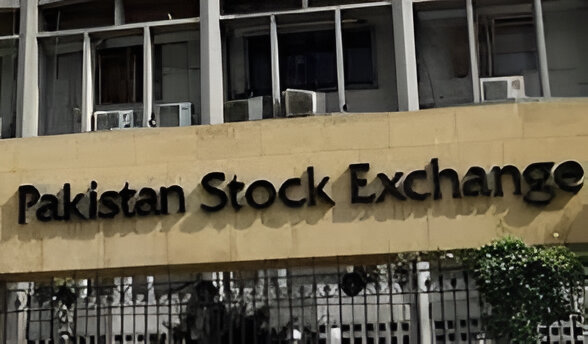Islamabad, Aug 11: During the course of the last ten years, foreign investors’ holdings in firms that are listed on the Pakistan Stock Exchange (PSX) have drastically decreased, hitting an all-time low of 3.7% ($491 million) of the total value of publicly traded shares in the fiscal year that ends on June 30, 2024.
Arif Habib Limited’s research titled “Market Strategy: Unveiling the Flow – Liquidity Dynamics at PSX” states that in FY17, foreign ownership accounted for 28.7%, or $2.97 billion, of the market capitalization that was free float. Strategic investments in both public and unlisted Pakistani companies regardless of whether they include management control are not included in this foreign shareholding.
Due to the last ten years’ economic and political unrest as well as the currency rate’s extreme volatility, international investment has been severely curtailed. Even while worldwide investment fell to a historic low of $491 million, or 3.7% of total investment, foreign investors contributed $141 million to the PSX in FY24.
These latest influxes took place in the midst of FY24’s steady rupee-dollar exchange rate, early signals of economic recovery, and hints of political stability. This stability came after the $3 billion, nine-month IMF loan program was successfully completed in April 2024, and an extra $7 billion bailout package was agreed upon by IMF staff in July 2024.
The PSX closed at 78,445 points in FY24, up 89% in rupee terms and 94% in US $ terms from FY23’s closing of 41,453 points, making it the best-performing stock market in the world. Midway through July 2024, the index hit an all-time intraday high of 81,940 points; on the last day of trading on Friday, it closed at 78,570 points.
The PSX experienced a large influx of foreign investment after changing from an MSCI Emerging Market (EM) to a Frontier Market (FM) in 2009; $573 million came in during FY10. With the exception of FY12, this inflow sparked a significant period of foreign investment that resulted in cumulative inflows of $1.72 billion over the following six years.
However, the PSX had large foreign outflows of $2.27 billion between FY16 and FY22, which mostly affected industries including banking, exploration and production (E&P), cement, and others. In spite of Pakistan’s status as a frontier market and the KSE-100 index’s impressive performance in FY24, the index is still trading at an appealing price-to-earnings (PE) ratio of 4.1 times, which is a sizable 77% discount to its peers. Analysts predict that foreign investment will rise even more in the upcoming years, especially with the start of the $7 billion IMF program. The research house claims that the PSX is the most lucrative market with the greatest dividend yield, as well as the lowest in terms of price-to-book (PB) and PE ratios.
Local market activity is led by State Life.
Insurance companies accounted for the majority of local flows in FY24, being the leading net buyers with investments of $126 million. Several businesses that made a net purchase of $36 million came next. On the other hand, some local market participants were net sellers, as individuals sold $60 million worth of shares while banks and development finance institutions (DFIs) offloaded $141 million.
“Analysing the insurance flows, we observe that State Life Insurance played an anchor role by increasing its stake in the market and investing heavily when stocks were available at bargain prices,” the institute stated.
State Life Insurance invested Rs. 40 billion ($142 million) to expand its market exposure, which not only maximized portfolio returns but also had a positive impact on market direction. The only entity that has raised its holdings since the market’s peaks in 2017 is State Life, which now holds 6.2% of the free-float market, up from 4.2% in 2017. However, compared to 2017, the holdings of banks, mutual funds, and other insurance companies (apart from State Life) are lower, at 6.9% (2017: 7.7%), 7.1% (2017: 12%), and 1.6% (2017: 4%), respectively.
72.6% of the KSE All free-float is currently held by individuals, corporations, non-banking financial organizations (NBFCs), and others, up from 43.4% in 2017. Investor confidence in Pakistan’s economy and company performance are combined to create the KSE-100 Index. “We think that investor confidence in the market should be strengthened by the government’s economic reforms implemented under the $7 billion Extended Fund Facility (EFF) of the IMF. The new IMF program will also assist in bridging the external funding deficit and support inflows from multilateral partners and rollovers from bilateral partners.”
